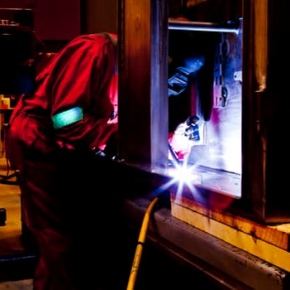
400,000 workers need recruiting to deliver the homes and infrastructure required
Arcadis has produced a report, the Arcadis Talent Scale, to explore the extent of the skills crisis across the infrastructure and housing workforce.
To “increase output to 270,000 new homes over the next five years, it will need to employ an excess of 370,000 new people,” the report claims. In order for the forecast national infrastructure requirements to be met, an additional 36,500 people will need to be employed each year.
The report suggests that demand for carpenters and joiners accounts for nearly a sixth of all national resource requirements. Plumbers, electricians and bricklayers are in high demand, also, with at least 7,400 and 7,300 civil engineers and quantity surveyors required.
It is expected that London and the South-East will need to employ 110,000 people, more than other parts of the UK. The East of England requires 43,000 workers and 41,000 for the South-West. On the other hand, just three per cent of the national total is expected to be needed in Ireland.
HS2 and Crossrail 2 will require companies to draw heavily on the common talent pool of transferable skills in order for delivery targets to be achieved, Arcadis predicts.
Director of workforce planning, James Bryce described the skills gap as a “skills gulf” and explained that underinvestment in the nation’s workforce has contributed to a reduction in UK productivity. If we don’t have the right people to build the homes and infrastructure required in the UK, then we will struggle to maintain competitive position in the global economy, he warned.
In the long term, construction will need to look at those currently working in other industries and “dramatically improve” its efficiency, in addition to education and technology alone.
Bryce added that the government can help by looking to secure the rights of the EU workers currently working in British construction by simplifying the visa system and minimising the tax burden.
Projects that have been predicted for economic stimulus could prove more difficult and costly to resource, if this does not happen. In the worst-case scenario they might not actually be delivered at all.
Latest news

11th April 2025
Don’t Do a Dave! It’s Time to Lock FIT Show 2025 in Your Calendar!
It’s that time again – FIT Show is back! You could be forgiven for thinking there won’t be much new to see when FIT Show returns to the NEC from 29 April – 1 May. Wrong!
Posted in Articles, Building Industry Events, Building Industry News, Building Products & Structures, Building Services, Continuing Professional Development (CPD's), Exhibitions and Conferences, Information Technology, Innovations & New Products, Restoration & Refurbishment, Retrofit & Renovation, Seminars, Training
11th April 2025
Insight Data: Boost construction success with project and prospect data
For those working in construction – in whatever capacity – the last few years haven’t been much fun. And according to the latest statistics, it would seem the challenges are continuing – Alex Tremlett, Insight Data’s Commercial Director, has more…
Posted in Articles, Building Industry News, Building Services, Information Technology, news, Research & Materials Testing
11th April 2025
ASSA ABLOY EMEIA: Learn how to tackle the security challenges of digitalising access with insights from industry experts
In a new series of videos, experts in various specialisms within ASSA ABLOY share their expertise on digital access, including the complexities to overcome and the range of benefits for those who get digital access right…
Posted in Access Control & Door Entry Systems, Architectural Ironmongery, Articles, Building Industry News, Building Products & Structures, Building Services, Doors, Facility Management & Building Services, Information Technology, Innovations & New Products, Posts, Restoration & Refurbishment, Retrofit & Renovation, Security and Fire Protection, Videos
10th April 2025
Geberit completes 150 Acts of Kindness
Geberit has raised nearly £14,000 for various charities through its ‘150 Acts of Kindness’ initiative, a year-long programme of fundraising and volunteering to mark the company’s 150th anniversary in 2024.
Posted in Articles, Bathrooms & Toilets, Bathrooms, Bedrooms & Washrooms, Building Industry Events, Building Industry News, Building Products & Structures, Building Services, Charity work, Drainage, Interiors, Pipes, Pipes & Fittings, Plumbing, Restoration & Refurbishment, Retrofit & Renovation
 Sign up:
Sign up: